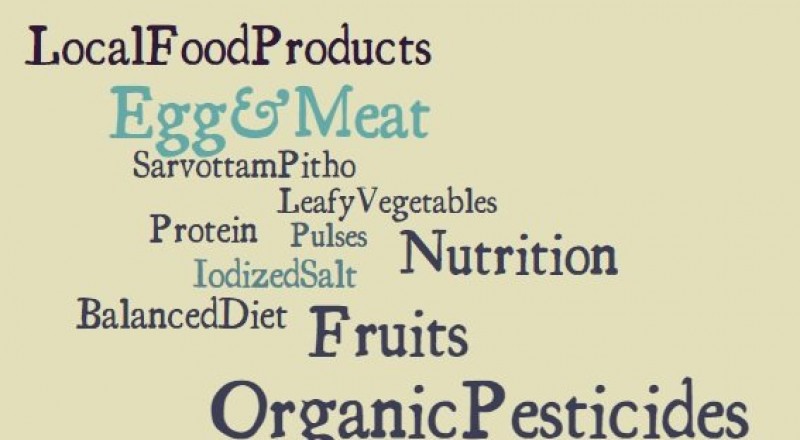People in rural Nepal are now more aware about nutrition. Knowledge, that green leafy vegetables, pulses, legumes, fruits and animal source of protein like eggs and meat need to be included in the diet daily, are now widespread. Communities are also practicing these principles in real life. They are using local resources and innovative approaches to ensure balanced diet for themselves and their children. Women are found to be taking a lead in this initiative. They discuss about nutrition in mother’s groups and other social groups. They rear poultry for eggs and meat. They grow seasonal vegetables in the kitchen garden for consumption every day.
There are various communities using organic pesticides from animal manure and household wastes in crops. They realize chemical pesticides contaminate food. Use of iodized salt has taken the form of a nation-wide campaign. The government has endorsed this campaign and the results can now be seen. Many people prefer and use iodized salt. Awareness about preserving iodine is also gradually increasing. People store iodine in covered vessels and also cover food while cooking to prevent loss of iodine.
Child nutrition and nutrition of pregnant and recently delivered women have seen significant improvement. Many families now support women and ensure proper nutrition during and after pregnancy. The children are breastfed and given complementary food in the form of jaulo, lito and other items. Many have knowledge about sarvottampitho (super flour, made by grinding 2 parts pulses and 2 part whole grains) and feed the children with lito made fromsarvottampitho.
The practice of feeding instant food such as biscuits and noodles to children for convenience is widespread in Nepal. However, now, many have started avoiding this practice and feeding the children with locally available nutritious food. The community is gradually becoming aware about the ill-effects of junk food. The knowledge that children also require meat and eggs is spreading and is gradually being practiced too.
These good practices reflect upon increasing nutritional awareness among Nepalese households. With initiation of specific programmes such as Suaahara (Good Nutrition) by USAID, the nutrition-specific interventions have been more targeted to underserved population with limited access and understanding on public health issues. Resting on such success stories, nutrition related programmes should be designed and implemented by the government in order to ensure sustainability and long-term positive outcomes.




Comments(0)
No comments found.